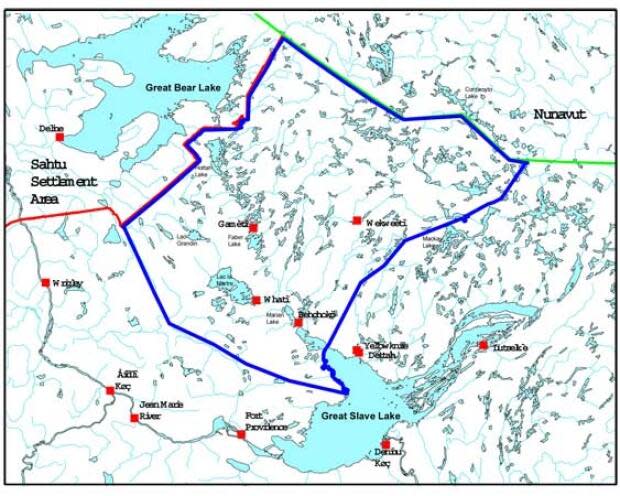Tłı̨chǫ govt. join chamber of mines court case

The Tłı̨chǫ government is weighing in on a court case in which the NWT and Nunavut Chamber of Mines is asking the courts to overturn a decision by the Mackenzie Valley Land and Water Board.
The case stems from the chamber's request to the board to extend the terms of all land use permits by two years. In the July 14, 2020, request, the chamber said exploration companies needed the extension because their projects had been delayed by COVID-19 travel restrictions.
The board responded, saying it did not have the authority to extend the term of any permit without an application from the permit holder. The chamber accepted the explanation.
But the board went on to say that regulations only allow it to extend a permit once, for a maximum of two years. The chamber said there is nothing that limits how many times a land use permit can be extended, a view it's asking the court to confirm.
Land and water boards review resource development projects, such as mining exploration projects, and issue permits that are required for them to proceed.
On Friday, a judge agreed to an application by the Tłı̨chǫ government to join the court case. The application was neither opposed or supported by the other parties to the case, the chamber and the Mackenzie Valley Land and Water Board.
Tłı̨chǫ say case is crucial to them
The Tłı̨chǫ government said the case is crucial to them because it deals with their treaty right to be co-managers and joint decision makers on resource development within the 160,000 square kilometre area known as Wekeezhii in the Tłı̨chǫ Agreement.
When the Mackenzie Valley board invited comments from interested parties before making its decision on whether permits can be extended more than once, the Tłı̨chǫ argued it could not.
The section of the land use regulations that deals with permit extensions is ambiguous. It says only that "the board may extend the term of the permit for an additional period not exceeding two years."
In its argument, the chamber points out that other land use regulations in the territory explicitly state that permits can only be extended once. It says if legislators intended that to be the case with the Mackenzie Valley Land Use Regulations, they would have explicitly stated it.
In its request for a review of the board's decision, the chamber also argues the board did not have the authority to ask for public input on the question. The chamber said the board initially told it to get clarification from the federal government.
When Crown-Indigenous Relations and Northern Affairs Canada agreed with the chamber that there are no limits on the number of times a permit can be extended, the board then embarked on the public consultation and later came to the opposite conclusion.
No date has been set for the next court appearance in the case.

 Yahoo Movies
Yahoo Movies 